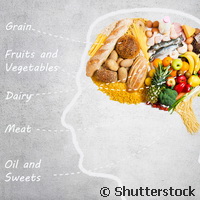The road to better health for adolescents
From diabetes and obesity to cardiovascular disease and cancer, illnesses and conditions that develop in middle age very often originate in childhood and adolescence. Evidence suggests that if adolescents had healthier lifestyles, they would enjoy a much better quality of life as adults. Getting to the root of the problem, the EU-funded project HELENA ('Healthy lifestyle in Europe by nutrition in adolescence') investigated what young adults are eating across the continent, as well as their attitudes to food. The team identified what it takes to promote healthy eating among adolescents and proposed new approaches for achieving this noble goal. Adolescence is an important period in terms of lifestyle choices. Parents make most food decisions until youngsters approach their teenage years. Then, youngsters gain access to pocket money and school canteens. And old habits die hard - some 80 percent of obese adolescents are likely to remain so in adulthood. Using advanced computer-based dietary assessment tools, the team pinpointed similarities and differences in food selection and meal patterns between the 3 000 young people interviewed, identifying common barriers, misconceptions and issues. It may not be a surprise to hear that snacking was a major problem across all countries studied, while general attitudes such as 'healthy food tastes bad' or 'healthy food doesn't fill you up' were also documented. Analysis across 10 countries also looked at food intake, eating attitudes, body composition, vitamin status, metabolism, obesity prevalence, insulin resistance, fitness and food choices. Going further, the HELENA team also studied genetic make-up, investigating interactions between genes and nutrients, as well as between genes and the environment. Allowing consumers to lead the way, the project developed new food products, such as a low-fat hamburger, boasting beneficial nutritional characteristics that appeal to adolescents. Overall the new foods were well received by the target group and helped shed light on how to improve diets for people aged 12-18. The team also tested healthy alternative diets on adolescents. One led to a significant reduction in the desire to eat and an increased the sensation of fullness. Schools, health services, hospitals, non-governmental organisations (NGOs), supermarkets and sports clubs be interested in two innovative web-based tools developed within the project - a 'food-o-meter ' and an 'activ-o-meter '. Each is able to provide individually tailored advice on eating habits and physical activity for adolescents. Altogether, the project has provided a useful set of tools and data for use by any organisation or body active in the health sector. It has also provided the first multi-country overview of European teenagers ' attitudes to food and health. HELENA brought together a pan-European team from Austria, Belgium, France, Germany, Greece, Hungary, Italy, Spain, Sweden and the UK between 2005 and 2008. It received almost EUR 5 million in EU funding was coordinated by the University of Zaragoza in Spain.For more information, please visit: HELENA http://www.helenastudy.com Project factsheet
Countries
Austria, Belgium, Germany, Greece, Spain, France, Hungary, Italy, Sweden, United Kingdom



